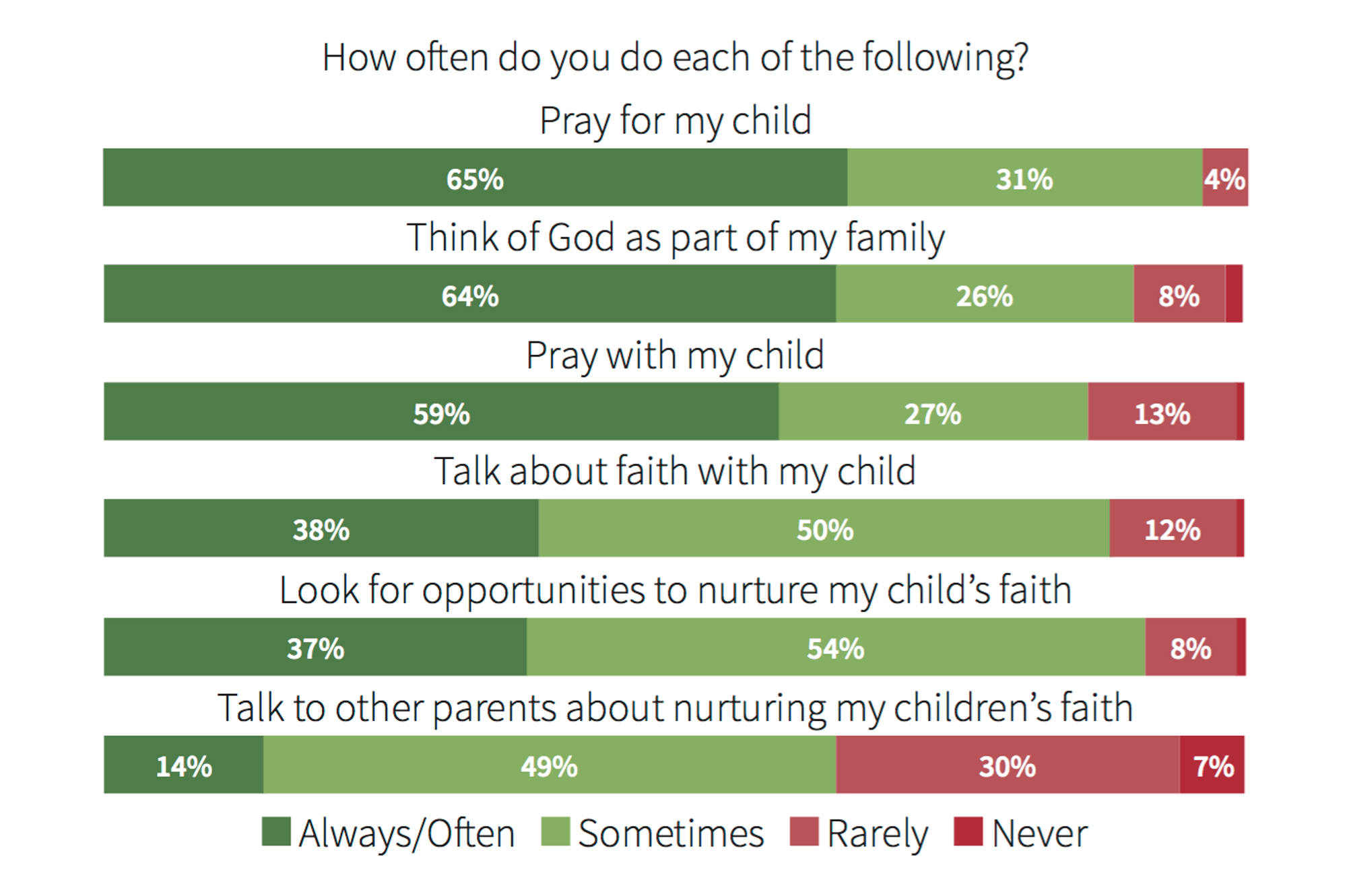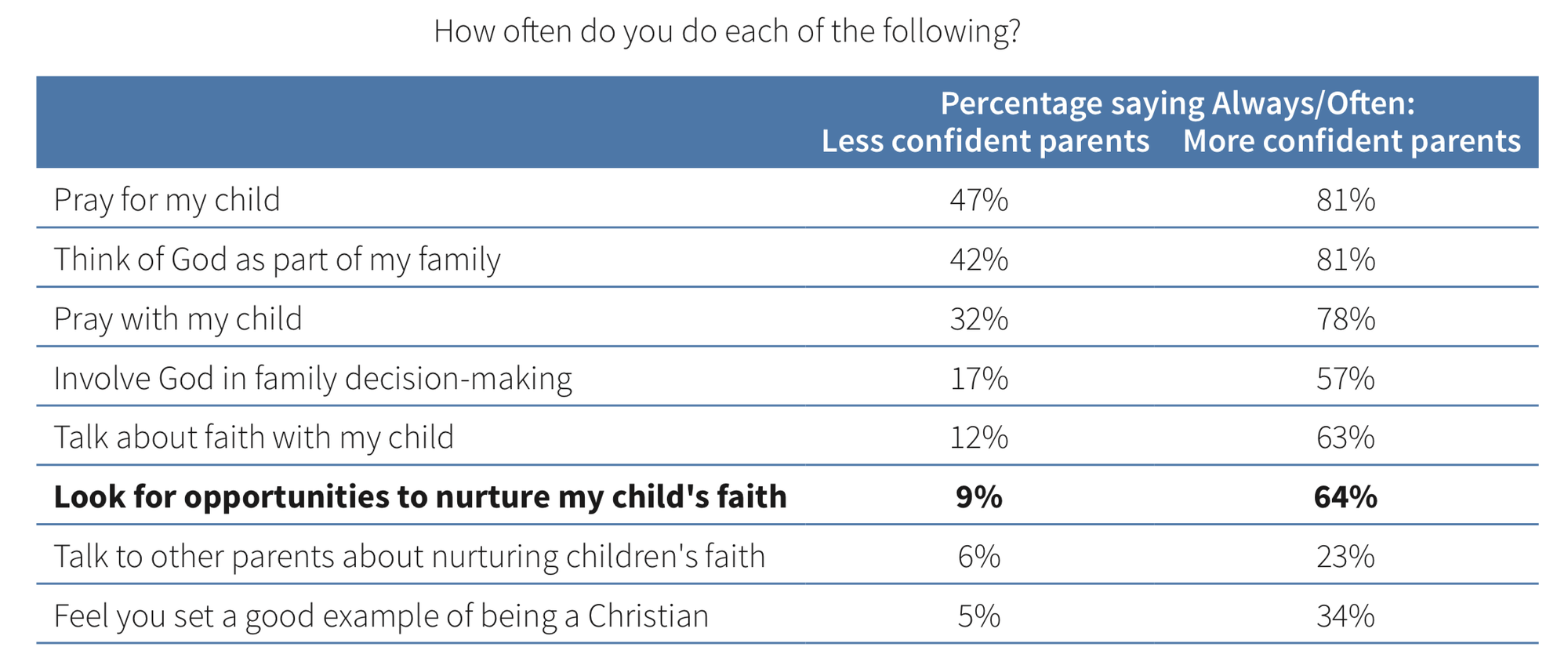A recent Care for the Family study suggests many Christian parents struggle with sharing their faith with their children. This report explores what the findings mean.
How do we pass on faith to our children and young people? It’s a challenging question, and one with no simple answers. And as the new report from Care for the Family reveals, parents feel burdened by the responsibility, and lack confidence in how to go about it.
The research combined qualitative and quantitative methods to survey 983 parents, 175 church leaders and 479 children’s workers. The parents described themselves as practicing Christians, and were keen to nurture faith in their children. The majority of respondees across the three categories above were female (84%).
Of the parents who participated, 95% believed that it was largely their responsibility to teach their children about the Christian faith, and 78% of church leaders agreed with this. An overwhelming majority of all those who completed the survey – parents, church leaders and children’s workers – felt that they ‘should be doing more’ to nurture faith in their children (92%, 94% and 85% respectively). This phrase is illuminating. For all three groups of people there is a clear sense of falling short of a perceived amount of stuff that ‘should’ be being done (but isn’t), and therefore perhaps a lack of ideas, motivation or time to make that stuff happen.
When you look at the breakdown of what parents do, many are participating in regular Christian practices with their children, praying with them, inviting God into the family and talking about faith (more than 85% always/often did these three things with their children):

These statistics seem pretty positive to me. Although it could be argued that ‘more’ could be done than what is displayed on this list, what they are already doing is significant. I’m sure that parents feel many pressures in so many different directions, and guilt for not doing or being enough in many different areas of family life. Hopefully one outcome from this report will be to encourage parents that the simple, regular and seemingly small things they are in many cases already doing with their children – praying, talking about faith, inviting God to be part of the family, reading the Bible together – are the rhythms that build faith over the long haul.
So why do these parents feel that they ‘should be doing more’? Sometimes statistics can be unhelpful in this regard. Perhaps the decline narrative around young people’s engagement with church (see Brierley, 2005, and perhaps also our Losing Heart report), the fact that the majority of Christians become Christians in their childhood and teenage years (See Faith Journeys from Christian research, 2010), and also that Christian parents have only a 50% chance of passing on faith to their children (Voas, 2014). I can feel the sense of anxiety bubbling up in me, and I’m not even a parent. No wonder parents feel anxious and lacking in confidence with such a monumental task before them. It’s not surprising therefore that what they are doing – which may be exactly the right things – seems, to them, inadequate.
There was also a sense in the report that parents struggled to find time to spend with their children, and therefore that talking about faith and practicing faith together became one of a long list of activities in family life. These were the top ‘barriers’ listed by parents to passing on faith, closely followed by feelings that they were not a good example or lacked self-confidence in their own faith:

It’s staggering to see how big of an impact confidence makes in the above list; the way in which a parent shares faith is tangibly affected by their confidence. It seems that raising confidence, and restoring parents’ sense of adequacy to raise their children in faith must be the highest priority for all of us who work in ministry. The same is true for church youth and children’s work. In our survey of 2000 churches we found that churches are distinctly lacking confidence in their children’s work and particularly their youth work (see our Losing Heart report). In the light of the numbers of young people leaving the church, what churches are able to offer feels, to them, inadequate.
One of our most urgent tasks as youth workers must be to raise confidence afresh in the small, faithful and regular rhythms of faith development going on in families and churches across this country. And like the boy who brings his meagre packed lunch to Jesus, we must inspire others to trust that this, in the hands of God, is enough.
For Care for the Family's full research report, click here.



